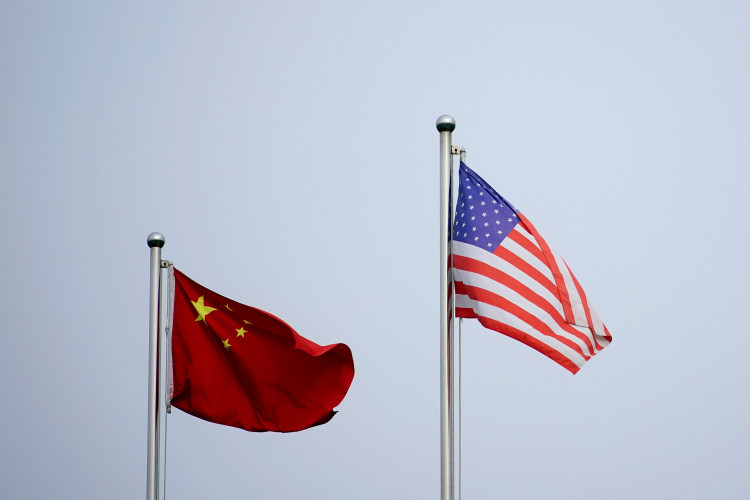A senior U.S. official has called on China and Russia to join the United States, France, and Britain in declaring that only humans, and never artificial intelligence (AI), would be allowed to make decisions regarding the deployment of nuclear weapons. Paul Dean, principal deputy assistant secretary in the State Department's Bureau of Arms Control, Deterrence and Stability, made the appeal during an online briefing on Thursday, emphasizing the importance of establishing a global norm of responsible behavior.
Dean highlighted that the United States has made a "clear and strong commitment" to ensure that humans maintain total control over nuclear weapons, a stance that has been echoed by France and Britain. "We would welcome a similar statement by China and the Russian Federation," he said, adding that such a commitment would be "extremely important" and "very welcome" among the five permanent members of the United Nations Security Council (P5).
The official's remarks come as the Biden administration seeks to deepen discussions with China on both nuclear weapons policy and the development of artificial intelligence. During recent talks between U.S. Secretary of State Antony Blinken and Chinese Foreign Minister Wang Yi in Beijing on April 26, the two sides agreed to hold their first bilateral talks on AI in the coming weeks. The aim of these discussions is to share views on how best to manage risks and ensure safety surrounding the rapidly advancing technology.
The spread of AI has become a growing concern in the context of nuclear weapons, with many experts warning of the potential dangers of allowing autonomous systems to make decisions regarding the deployment of such devastating weapons. The U.S. official's call for a global commitment to human control over nuclear weapons is seen as a crucial step in mitigating these risks and promoting responsible behavior among nuclear powers.
While the Chinese defense ministry has not immediately responded to a request for comment on the U.S. official's statement, China has been expanding its nuclear weapons capabilities in recent years. In February, Beijing urged the largest nuclear powers to first negotiate a no-first-use treaty between each other, a move that could help reduce tensions and the risk of nuclear conflict.
The U.S. official's appeal to China and Russia comes at a time when relations between the three countries remain strained. Last year, Russian President Vladimir Putin announced that Russia was suspending its participation in the New START treaty, a landmark arms control agreement with the United States that allows the world's two largest nuclear powers to reduce and limit each other's arsenals. The treaty, which was last extended in 2021 through 2026, also enables the two nations to inspect each other's nuclear weapons facilities.
As part of efforts to normalize military communications, U.S. and Chinese officials resumed nuclear weapons discussions in January. However, formal arms control negotiations are not expected to take place in the near future, underscoring the challenges in addressing the complex issues surrounding nuclear weapons and the role of AI in their deployment.
The U.S. official's call for a global commitment to human control over nuclear weapons serves as a reminder of the urgent need for international cooperation and dialogue on these critical issues. As the development of AI continues to advance at a rapid pace, it is essential that nuclear powers work together to establish clear norms and guidelines to ensure that these powerful technologies are used responsibly and do not pose a threat to global security.






